
Once example of a study conducted in relation to the perception of time was held in 2005 at the Ludwig Maximilian University of Munich. Psychologists Marc Wittmann and Sara Lenhoff surveyed a sample of 499 participants, aged between 14 and 94. They were asked about how fast they felt time was moving, and had the option to select different answers ranging from “very slowly”, to “very fast”.
The psychologists conducting the study concluded that the perception of short periods of time, namely days, weeks or months, did not change with age. In fact, the general perception for these time periods was that the clocked ticked by quickly.

In contrast, when participants were asked about longer periods of time, such as a decade, a pattern began to emerge. Older people had a much greater tendency to perceive such time periods as moving faster.
The study’s participants aged 40 or older felt that time elapsed slowly in their childhood, but accelerated steadily from when they were in their teens into early adulthood.
The main reason for this is that a human being can estimate the length of an event from two distinct vantage points, prospective and retrospective. As their names suggest, the former occurs when an event is still ongoing, and the latter occurs when an event has ended.

A secondary reason for the perception of accelerated time is that our experience of time simply varies from one experience to the other. This means that there really is truth in the saying “time flies when you’re having fun”. The funny thing is that when we’re in such special moments, they seem to end quickly, however our perception of them when we look back at them makes it seem as if they were much longer than they really were.
It’s believed that the reason for the aforementioned is how the brain encodes new experiences. In other words, the more new memories we build on a weekend getaway, the longer the trip will seem in hindsight.
According to BBC columnist and psychologist Claudia Hammond, this is what’s known as the “holiday paradox”. From childhood through to early adulthood, we go through many new experiences and learn a whole myriad of new skills. As time goes by, our lives become more routine, thus we tend to experience less moments that are unfamiliar.

She contends that because we deal with so many new things in our early lives, this leads to over-representation of our early lives in our autobiographical memory. The inevitable result of this is that the time seems to have lasted longer.
All of these findings don’t mean that we are unable to slow time down in later life. In fact, we can do so by keeping our brains active, continually learning new skills and ideas, and exploring new places.
Content Source: Scientific American

Now I Understand Why Older People are Generally Happier...
Although many things go intro decline as we age, there's actually scientific evidence that older people are happier than their younger counterparts. Read on.

This Research Shows How Fasting Can Slow Down Aging
A recent study has found that a molecule produced while fasting has an anti-aging effect on vascular system. Learn all about it here.

These Profound Quotes Teach Us to Embrace Our Age
These profound and inspirational quotes will remind you of the beautiful aspects of aging!

Scientists Find Enzyme That Could End Aging and Cancer
Scientists have found an enzyme that they reckon could be used to slow down the aging process and eradicate cancer!

Science Says Chocolate & Coffee May Prevent an Early Death
Learn how anti-inflammatory foods, such as chocolate, olive oil, fruits and vegetables can keep you from dying early.
 21:10
21:10
How We Might Slow Down or Even REVERSE Aging Soon
Epigenetics, a new branch of biology, may hide the secret to anti-aging. This series of short interviews explains how this might work...

Study: New Link Found Between Parkinson's and the Gut
A recent study has identified gut microbes likely involved and linked them to decreased riboflavin (vitamin B2) and biotin (vitamin B7), suggesting a potential treatment

Scientists Develop 'Flying Dragon' Robot to Fight Fires
Scientists in Japan have created a water-spitting 'flying dragon' robot to fight fires.

Welcome to the Fastest Maze-Solving Competition Ever Made...
Welcome to Micromouse, a competition for the quick of eyes and the quick of minds. This is the oldest robotics race.

Let's Learn All About Your White Blood Cells
White blood cells (WBCs) are the part of your immune system which is responsible for fighting infection. Learn all about them here!
 3:16
3:16
You Wouldn't Believe How Far Technology Has Come
Take a look at the advancements of technology in this video. Impressive.
 30:04
30:04
50 Crazy But True Facts About Dreams You Need to Know
Here are some strange and unusual facts about dreams that will surprise you.
 3:10
3:10
Watch the Best HD Panorama Photo of Mars Ever Taken
Watch an incredible 1.8-Billion-Pixel panorama of the planet Mars that was recently captured by NASA's Curiosity rover.
 9:34
9:34
Was Roman Concrete Really Superior to Our Own?
How did Ancient Romans make such durable concrete that it still lasts today?

These Photos Show How Dependent We are On Smartphones
Technology has taken over and these funny (but true) photos help to drive this fact home.

7 Little-Known Body Parts We Never Knew About
Here's a look at some of the weird and little-known body parts that you didn’t know you had.
 5:01
5:01
The Truth About Folding Phones You Need to Know
Don’t buy a foldable without knowing this first.

Stunning 2024 Images from the James Webb Space Telescope
Marvel at the new images revealed by the James Webb Space Telescope.
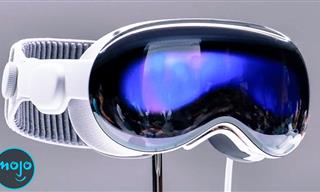 11:03
11:03
These New Technologies Will Change the World!
These groundbreaking tech innovations are going to change our world!

GUIDE: How Alcohol Affects Us, Drink by Drink...
In this article, we're going to discuss the exact amounts of alcohol in our blood and what they look like, including how each level affects us and our ability to function.
 9:15
9:15
These Bizarre Mysteries Continue to Stump Scientists!
The world of science hasn't been able to explain several bizarre phenomenon yet. Let's take a look at a few of them.
 56:12
56:12
What's the Largest Thing in the Universe?
In this video, we look into some of the mightiest structures in the known universe.

Scientists Develop Wrap That Determines if Food is Spoiled
Scientists at MIT have developed a biodegradable plastic-like wrap that changes color when food goes bad. Find out more…

Science News: New Wonder Mushroom Cleans the Air
Let's learn about a magical new mushroom that is not only enriching the soil for farmers but also capturing CO2 from the air!

Travel From the Sun to Pluto With Our Interactive Guide!
The solar system is a fascinating place, and we wanted to bring you an interactive journey that you can use to travel through it. Enjoy the journey!
 8:10
8:10
Taller Doesn't Mean Bigger - the True Size of Skyscrapers
If you were to compare skyscrapers by area rather than height, which skyscraper would end up on top?
 15:07
15:07
Amazing New Scientific Discoveries You Missed in 2024
There have been so many interesting scientific discoveries this year that we have missed!
 27:48
27:48
Fascinating: How are CPU Chips Made?
This is a comprehensive look at both the fabrication process and the workings of a microchip plant that makes CPUs for computers.

20 Useful Facts About the Science of Cooking
The science behind cooking is not often thought of, but it plays a crucial role in a dish turning out right. Here are 20 facts on the science of cooking.
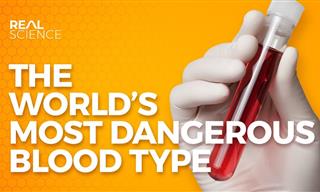 12:35
12:35
The World's Most Dangerous Blood Type
Today we will discuss the most dangerous blood type to have, the one you cannot get an infusion for. Let's delve right in and learn about this rare blood type.

Ponder Life's Big Questions with a Truly Brilliant Mind
Dr. Michio Kaku is known around the world for his brain power and ability to explain complex concepts with effortless ease. Here are his thoughts.
 26:43
26:43
These 20 Tech Inventions Will Define the Next Decade
The future is here. Check out some emerging technologies that are all set to chane our world forever.
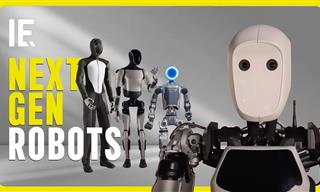 5:50
5:50
The Rise of the Machines: Can Humanoid Robots Help Us?
Will humanoid robots change the way we work forever?
 5:39
5:39
Why Are Your Ears Ringing? The Causes Explained
Nearly 15% of the human population worldwide are plagued by this strange sensation, but most people don't know the causes behind ringing in the ears...
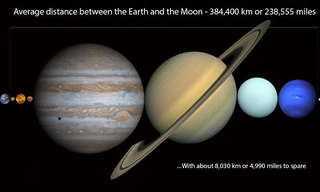
Amazing Science: THIS is the True Scale of Our Universe...
Get a sense of the true scale and shape of the universe we've discovered so far.

These Engineering Failures Ended In Real Catastrophes
These are 10 of the worst engineering failures in history. These accidents had horrific results, and we must learn from them to never ever repeat them.
 1:29
1:29
A Must See: White Cells Devouring Bad Bacteria!
A real look at how white cells identify and consume harmful bacteria.
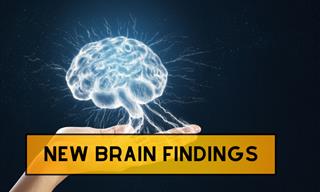
10 New Things We've Learned About The Brain
We have learned some astonishing new things about the human brain in recent times.
 15:55
15:55
This Incredible Documentary Takes You Into the Human Body
A beautiful and graphically advanced animation sheds light on the mysteries of the human body.
 2:52
2:52
New Robots: This Robot Uses Both Wheels AND Legs
This robot can get just about anywhere in little time because it uses both wheels and legs to get over most hurdles.

6 Remarkable Yet Overlooked Minds That Shaped Our World
These underappreciated geniuses deserve more recognition.
 8:19
8:19
You Won't Believe What Passes for a Phone in North Korea
You won't believe what phones look like in North Korea!
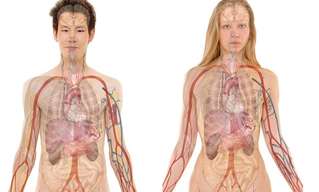
The Facts You Didn't Know About the Human Body...
Discover 120 fascinating and surprising facts about your body you may not have known. Going over most of the body parts, you will learn so much you never knew about the body we all use.

There are Some Great Secrets Found in Mathematics...
Numbers hold some great secrets - they even tell us about life!

Science Breakthrough: An Immunization Against Skin Cancer?
This scientific breakthrough offers hope for those who are struggling with skin cancer. You are now invited to discover more about this revolutionary vaccine.

9 Recent Groundbreaking Discoveries You Need to Know About
These recent breakthroughs will revolutionize our world.
 4:40
4:40
Breathalyzers May Be More Important Than You Thought
This video does a great job in breaking down how in the future, breath analysis can be used to detect disease and prevent more invasive procedures.


